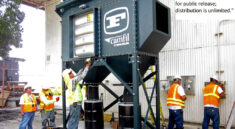Do you want to register a company in China? Over the last couple of decades, it has undergone major transformations that have made it race past other jurisdictions to emerge the leading manufacturing and global investment hub. But when registering a company in China, it is important to appreciate that it uses a different form of accounting; the Chinese accounting standards (CAS).
Understanding CAS is important to ensure you do not get into conflict with the law. So, here is a deeper look at this method of accounting to help you understand the differences with the international financial reporting standards (IFRS) and how to get it right for your business.
The Main Difference between CAS and IFRS
Although China has done a lot of work to try and streamline its CAS with IFRS, there are still remarkable differences that you need to get right after opening a company in China.
- The methods employed for fixed assets valuations are different.
If you have been using IFRS for accounting back at home, you might have noted that you are allowed to choose whether to employ the historical-cost valuation or re-evaluation method. It is up to you to decide. But with CAS, the only method allowed is the historical-cost valuation technique.
- Some rules in CAS are more detailed
When using CAS to handle books of accounts in China, as said by hawksford.com, some of the items that are deemed common in the People’s Republic of China are more detailed compared to IFRS. Here, we will demonstrate with an example.
When two companies that are controlled by one entity are merging, you must restate the figures according to CAS. However, IFRS is silent on how to handle such items.
- Implementation of changes from IFRS is not guaranteed
When international accounting standards have new updates, they are updated immediately in IFRS. However, CAS which is controlled by the Ministry of Finance in China, does not immediately implement it. Instead, it evaluates whether they are in the best interest of the country before recommending implementation. But it can also reject them.
Using CAS in Your Business
For most managers and investors who are used to IFRS, is not uncommon to easily land into trouble. For example, consolidating books of accounts between the parent company and the Chinese subsidiary is likely to be a challenge. So, here is what you need to do when utilizing CAS.
- The first step is ensuring to understand CAS and implementing it well to avoid getting into conflict with the law.
- To make it easy to consolidate the books of accounts for the Chinese subsidiary with those of the parent company, you need to translate them first.
- We must indicate that the Chinese administration takes matters of accounting and taxes very seriously. Therefore, you need to work closely with the Ministry of Finance when there is an issue so that it is resolved well and on time.
Although the Chinese accounting standards resemble IFRS in so many ways, it is important to understand them well to avoid getting into conflict with the law. More importantly, make sure to closely work with accountants in the ministry of finance to resolve any issue that might arise.





